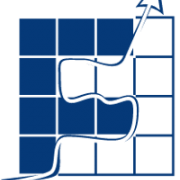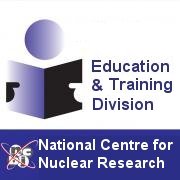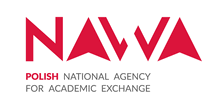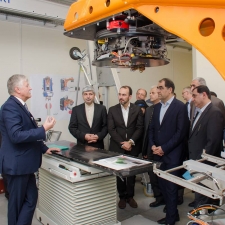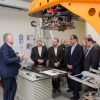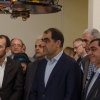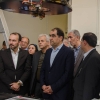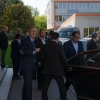Iranian Ministry of Health officials in NCBJ
2016.09.02 9:04 - adminDr. Seyed Hassani Ghazizade Hashemi, Iranian Minister of Health with some accompanying officials paid a visit to NCBJ to discuss various aspects of mutual cooperation in nuclear medicine, in particular a contract to deliver 20 NCBJ-manufactured medical accelerators to Iran.
The contract could be reached early next year within the framework of an agreement on mutual cooperation signed by NCBJ and Iranian Ministry of Health back in 2012. Iranian government is interested in equipping radiotherapy centres recently built in Iran with some innovative therapeutic machines to provide their patients with a more ready access to this very effective cancer treatment method. NCBJ is interested in obtaining Iranian orders to strengthen market position of its ZdAJ-HITEC division.
„Our Institute has been improving its competences in nuclear medicine already for many years. The NCBJ POLATOM brand name is well recognized on the radiopharmaceuticals market. We are among just a few suppliers of neutron-irradiated uranium targets and technetium generators based on radioactive molybdenum produced of such targets. We would like to build an equally strong market position as a manufacturer of medical accelerators and related equipment” – said Dr. Krzysztof Kurek, NCBJ Director General – „The Iranian contract would be an excellent opportunity to reach that goal. A long-term order for a series of machines could also help us to commercialize some new accelerator technologies recently developed within the framework of the ‘Accelerators & Detectors’ R&D project and applied in the Coline-6 prototype of a modern low-energy medical accelerator.”
History of trade contacts between NCBJ and Iran is about 20 years long. Medical accelerators from IPJ Świerk (NCBJ predecessor) were the first pieces of equipment of that kind deployed in Iran. They greatly helped to practically implement in that country modern radiotherapeutical methods to treat various cancers. The first of them was installed in university hospital in Kerman. Other accelerators, X-ray simulators, and smaller equipment were soon installed in Kerman, Teheran, Tabriz, Isfahan, Yazd, Shirraz, and Mashhad (in total 10 accelerators, 5 simulators, wealth of other equipment). Numerous Iranian medical physicists, therapy planners, and hospital technicians were trained in Świerk to learn how to run and maintain the supplied accelerators.
Iranian government officials came to Świerk at invitation of Mateusz Morawiecki, Polish Deputy Prime Minister and Minister of Development.

